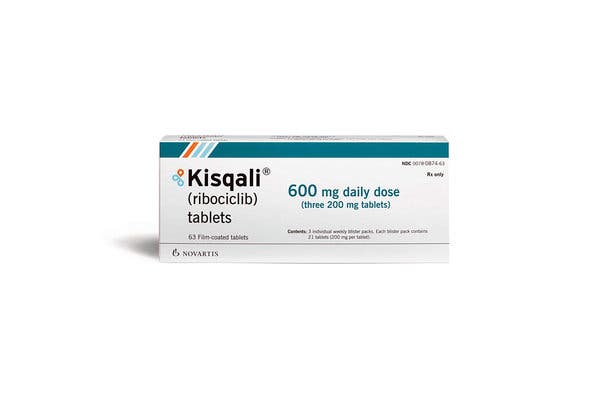A drug that can slow the progression of advanced breast cancer has been shown for the first time to lengthen survival in women whose disease started before or during menopause, researchers reported on Saturday.
In patients who took the drug along with a standard treatment, 70 percent were still alive three and a half years later, compared with only 46 percent of those given the standard treatment alone.
The standard treatment uses drugs to block the hormone estrogen or stop the body from making it, because estrogen feeds the growth of breast cancer in many patients.
The new findings apply only to women who have not yet reached menopause or are still going through it, and whose tumors are sensitive to estrogen but lack a protein called HER2.
“This is wonderful news,” Dr. Sylvia Adams, a breast cancer specialist and researcher at NYU Langone Health’s Perlmutter Cancer Center, said in an email. She was not part of the study, which she called “a very important milestone.”
She added, “It’s a trial worth highlighting, as there have been very few studies in advanced breast cancer in general showing a clear survival benefit.”
Younger patients have been a particular concern, because “breast cancer is known to be more aggressive and to be associated with a poorer prognosis in younger women than in older women,” the researchers wrote in The New England Journal of Medicine, which will publish the article online Tuesday, when the results are to be presented at the annual meeting of the American Society of Clinical Oncology, in Chicago.
“I think there’s a lot of optimism now that we have pushed the survival boundary, that we can go farther,” said Dr. Debu Tripathy, an author of the study and chairman of breast medical oncology at the M.D. Anderson Cancer Center in Houston. “Once you break a boundary, you learn how to break more boundaries.”
About 25 percent of breast cancers in the United States are diagnosed in premenopausal women, Dr. Tripathy said. In poorer countries, he said, the proportion of young women is higher, because the risk does not keep rising with age the way it does in richer areas, where it appears linked to weight gain.
In the United States, 268,600 new cases of breast cancer are expected this year, and 41,760 deaths. Globally, there are 2.1 million new cases a year, and last year there were about 627,000 deaths.
The drug used in the clinical trial, ribociclib (rye-bo-SIGH-clib), is a so-called targeted therapy, which blocks an enzyme that helps cancer grow. It was first approved by the Food and Drug Administration in 2017 for postmenopausal women with advanced breast cancer, and then in 2018 for younger women.
Its approvals were based on its ability to stop breast cancer from progressing. But halting progression does not always help patients live longer. A drug may stop working, and then the cancer may come back and resist further treatment.
Ribociclib is a pill, and the usual dosage costs $12,553 a month, according to Dana Cooper, a spokeswoman for its manufacturer, Novartis. Women may take the drug for months, or several years.
The company paid for the study, designed it, compiled the data and paid professional medical writers to help prepare the journal article. Researchers at medical centers in the United States, Asia, Latin America and Europe participated and “vouch for the accuracy” of the data, the journal article said.

Novartis manufactures ribociclib under the brand name Kisqali.CreditNovartis
Women taking the drug have to be monitored carefully, because it can cause dangerous abnormalities in heart rhythm, as well as liver and kidney problems and lowered blood counts that can increase the risk of infection. Like all targeted therapies, it may stop working as the cancer develops resistance to it.
Studies of two other drugs in the same class, which also stop progression of breast cancer, have not found a survival benefit. Research on them is still underway.
Dr. Tripathy said it was not clear whether the survival benefit from ribociclib was unique or would eventually show up with the other drugs, too. He added that it was also not known whether ribociclib might lengthen survival in postmenopausal patients as well as younger ones.
The study included 672 women aged 18 to 59, with 72 percent aged 40 or older. All had advanced breast cancer, meaning it had recurred after treatment or had begun to spread, and was no longer considered curable. All had estrogen-sensitive tumors.
In the past, the standard treatment for women in that situation involved hormonal treatments such as tamoxifen, to block the effects of estrogen, or drugs called aromatase inhibitors, to help stop estrogen production. Premenopausal women taking aromatase inhibitors need another drug as well, to shut down their ovaries.
But in women with advanced cancer, the hormonal therapy often stops working after a year or so.
All the women in the study got some form of hormonal treatment, and half were picked at random to also take ribociclib.
Sheila Hidalgo, 50, of Orange, Tex., was a participant. Breast cancer, first diagnosed in 2009 when she was 40, had spread to her liver, lungs and bones.
She took the Novartis drug from January 2015 until September 2017. During that time, a tumor in her lung and several in her liver disappeared, and a large one in her liver shrank from more than 6 centimeters down to half a centimeter, she said.
Her only side effect, she said, was “a little fatigue.”
After a little more than two and a half years, the cancer in her liver began growing back, “kind of fast,” she said. Because the ribociclib appeared to have stopped working for her, doctors switched her to another drug.
But she believes taking ribociclib helped. She’s now receiving chemotherapy, and she said, “I’ve still got a long life ahead of me.”

